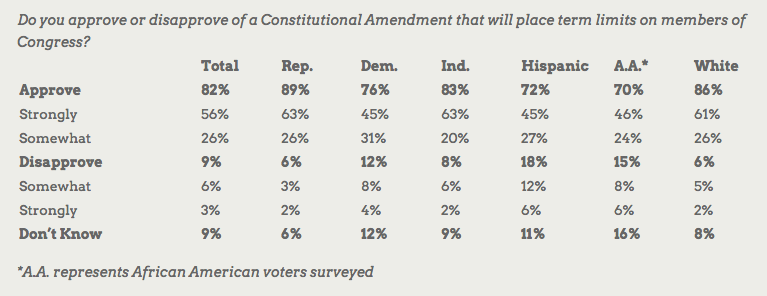Remember term limits?
Term limits for members of Congress isn’t a subject you hear much about these days but in the mid-1990’s almost half of the states in the U.S. had state laws imposing term limits on their members of Congress. But all of these laws were wiped out in 1995 when the Supreme Court heard a challenge to one of these laws in the case of U.S. Term Limits v. Thornton. In a 5-4 decision, the justices found that since qualifications for the House and Senate are set forth by the Constitution, only a constitutional amendment could impose term limits. Since then, joint resolutions proposing a constitutional amendment to impose term limits on members of Congress have been introduced repeatedly, including during every single session over the course of the past decade.
The idea behind term limits is simple. Senators can serve two terms before they’re forced to step aside while members of the House can stay in office for three terms or six terms, depending on the legislation. In eliminating the constant re-election cycle, legislators are freed to vote in the best interest of the country, instead of consistent with a re-election strategy. Moreover, this would return Congress to the body more closely envisioned by the Founding Fathers – one composed of citizen legislators that serve in government for short stints before returning to their communities and previous line of work. The idea of professional legislators is anathema to what the founders’ contemplated.
Term limits are popular among Americans. McLaughlin & Associates took a poll in January 2018 to assess public opinion on the subject and they found the following:

The overwhelming majority – 82%! – would support the passage of a Constitutional Amendment imposing term limits on members of Congress. The survey also found that 73% of Americans say they are more likely to vote for a member of Congress that supports term limits.
Allowing members of Congress to serve interminably has made elections less competitive. Incumbents are hard to unseat and the longer a member serves, the more entrenched they become. Tenures that can span decades also go hand in hand with the corrosive nature of money in politics because the fundraising cycle never ends, campaigns continue to get more and more expensive, and to secure donations, candidates have to carefully curate their policy agendas and weigh the political impact of every vote. Passing term limits would go a long way in alleviating much of what plagues the current political system.

 A101 Team
A101 Team 